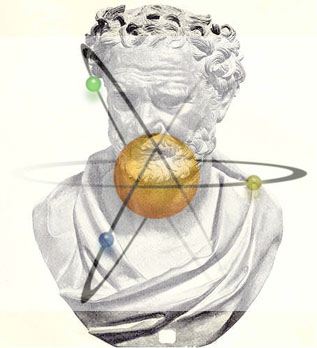
atomism [at-uh-miz-uh m] ExamplesWord Origin noun
- Also called atomic theory. Philosophy. the theory that minute, discrete, finite, and indivisible elements are the ultimate constituents of all matter.
- Psychology. a method or theory that reduces all psychological phenomena to simple elements.
Origin of atomism First recorded in 1670–80 Related formsat·om·ist, nounat·om·is·tic, at·om·is·ti·cal, adjectiveat·om·is·ti·cal·ly, adverb Examples from the Web for atomism Historical Examples of atomism
But in this instance the facts do not take us into atomism and anarchy.
John Dewey
Into the history of atomism Cudworth plunges with vast erudition.
Encyclopaedia Britannica, 11th Edition, Volume 7, Slice 8
Various
Mechanism as to motion, atomism as to structure, materialism as to substance, that is the whole system of Democritus.
George Santayana
It is the stand-point from which atomism would be adopted as the philosophic system.
Karl Rosenkranz
Continuity of growth not atomism is thus the alternative to fixity of principles and aims.
John Dewey
British Dictionary definitions for atomism atomism noun
- an ancient philosophical theory, developed by Democritus and expounded by Lucretius, that the ultimate constituents of the universe are atomsSee atom (def. 3)
-
- any of a number of theories that hold that some objects or phenomena can be explained as constructed out of a small number of distinct types of simple indivisible entities
- any theory that holds that an understanding of the parts is logically prior to an understanding of the wholeCompare holism (def. 3)
- psychol the theory that experiences and mental states are composed of elementary units
Derived Formsatomist, noun, adjectiveatomistic or atomistical, adjectiveatomistically, adverb
 Liberal Dictionary English Dictionary
Liberal Dictionary English Dictionary